The Institute for the Humanities has awarded fellowships to nine faculty and eight graduate students to support research projects they will pursue during 2012-13. The fellows and their projects are:
Faculty fellows
• Adam Ashforth, professor, Afroamerican and African studies; Hunting Family Fellow
“The Trials of Mrs. K, and Other Tales of the Quest for Justice and Security in the Shadow of AIDS in Africa”
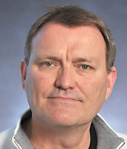
Ashforth
This book tells the story of an HIV/AIDS nurse’s futile struggle to clear her name of charges of witchcraft in a small town in Malawi. The epidemic has exacerbated a pervasive sense of insecurity and injustice in everyday life in heavily affected areas such as Malawi, producing a quest for justice and security with which established institutions struggle to cope. The consequences of this quest, though of the utmost importance in African lives such as Mrs. K.’s, have been largely invisible to the social science of AIDS in Africa.
• Kathleen Canning, professor, history, women’s studies, Germanic languages and literatures; Helmet F. Stern Professor
“Citizenship Effects: Gender and Sexual Crisis in the Aftermath of War and Revolution in Germany, 1914-1930”
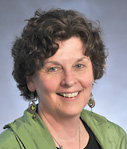
Canning
This study explores the emergence of citizenship as a new language of participatory politics on the German home front during World War I. The perceived feminization of civil society, the declining rates of birth and marriage and the demographic surplus of women in the face of mass death at the front fueled perceptions of a looming sexual crisis among nationalists and militarists. The proclamation of equal citizenship rights amidst Germany’s disastrous defeat, the revolution of 1918, and the collapse of the Kaiser’s rule meant that the citizenship enacted in Germany’s first democratic constitution aimed to reorder civil society, family and gender. The casting of the new rights and duties of citizens in terms of men and women’s specific embodied capacities would have implications for the later republic when the terrain of participatory politics expanded into the arenas of consumption, popular culture, and reproductive politics, unsettling rather than ordering the republic in its later years.
• Frieda Ekotto, professor, French, comparative literature, Afroamerican and African studies; Hunting Family Fellow
“Vibrancy of Silence: Women Loving Women in Sub-Sahara Africa”
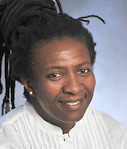
Ekotto
In Sub-Saharan Africa, lesbians are acknowledged neither by family systems nor by mainstream discourses. At best, they live in relationships that are denied or condemned. At worst, they live with the fear of being ostracized, disowned, beaten or killed. By examining how artists use coded language to talk about homosexuality — or simply remain silent as a means to avoid social unrest — it attends to the communities of lesbians, which have been made ghosted/irrelevant/voiceless/socially marginal. Ekotto will expose the psychological violence suffered by Sub-Saharan lesbians, and will demonstrate that lesbian women do indeed have voices, which challenge cultural references and fill the emptiness of silence.
• Karla Mallette, associate professor, Italian and Near Eastern studies; Helmet F. Stern Professor
“Lingua Franca in the Mediterranean”
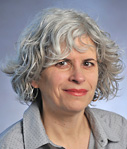
Mallette
The national languages of European modernity make immediacy their crowning virtue: they maintain an intimate connection to a living, speaking community in a bounded territorial region. But in the pre-modern world, the cosmopolitan languages of literary culture — Greek, Latin and Arabic, for instance — were used to cheat the limitations of the vernaculars, to communicate across vast reaches of space and time. This project studies the literary lingua francas of the pre-modern Mediterranean for perspective on language as a marker of geographical and historical identity, and on the capacity of certain languages to transcend geo-historical specificity.
• David Manley, assistant professor, philosophy; Norman & Jane Katz Faculty Fellow
“Method in Metaphysics: The Semantics and Subject Matter of Metaphysical Inquiry”
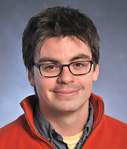
Manley
There recently has been plenty of self-doubt among analytic philosophers about the status of metaphysics as a discipline. This project will critique some of the working assumptions behind contemporary analytic metaphysics, and offer a set of positive methodological proposals. This will require an account of the role of natural language semantics, as well as a theory about what makes a given philosophical dispute “merely terminological.”
• Daniel Ramirez, assistant professor, history and American culture; John Rich Professor
“’Alabaré a Mi Señor’: Subaltern Pentecostal Music in American Religious History”
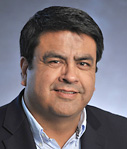
Ramirez
The flood of Pentecostal and Pentecostal-like revivalism in the Spanish and Portuguese-speaking Americas in the last quarter of the 20th century has invited much social scientific inquiry. Most such studies, however, lack a careful historicization, and most historical studies overlook the cultural sphere. This project assays a cultural history of (U.S.-Mexico) borderlands Pentecostalism, one of Pentecostalism’s original tributaries, and examines pneumatic Christianity’s sonic, lyrical, corporeal, and transnational dimensions in the early and mid-20th century. This analytical approach seeks templates to understand contemporary Pentecostalism’s still salient features of migration, mobility and musicality.
• Douglas Trevor, associate professor, English and creative writing
“Radical Charity and the Long Reformation”
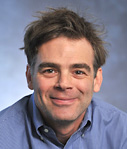
Trevor
This study examines the emergence of a radical redefinition of charity in the early 1300s, when a succession of mystics beginning with the French Beguine Marguerite Porete began to argue that the fervently devout might in fact find themselves visited and fully enriched (perfected) by God’s grace before experiencing bodily death. Throughout the medieval and early modern periods, Spiritualists — those who espoused the doctrine of perfectionism — were accused of inappropriately figuring God as an erotic object. They were also criticized for describing their charitable attitudes toward other humans in erotic terms, and for the extraordinary measure of happiness that these men and women claimed was attainable on earth. This project explores the dissemination of these Spiritualist views during the Reformation, and reads a number of early modern literary works — including the writings of William Shakespeare and John Donne — with this unconventional articulation of caritas in mind.
• Jason Young, associate professor, architecture; Helmet F. Stern Professor
“Skirmishes with the MacroPhenomenal: Letting Go of the City”
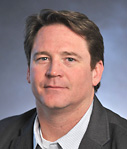
Young
This project aims to desimplify certain ubiquitous phenomena like big-box retail landscapes, strip malls, franchise spaces, gas stations, parking lots, retention ponds and truck stops. These are among the overly familiar situations and spaces that are rarely seen and explored by intellectuals. Despite — or perhaps because of — this, conducting research into cultural formations such as these provides an ideal opportunity to challenge and rethink some of the dominant assumptions and ideas that structure scholarship on American urbanism. This research prioritizes the fluid horizontal spaces of auto-mobility, following from an assertion that the city is a decaying model for academic work. In making this assertion, letting go of the city presents its own gains and losses, and is, therefore, correlated with letting go of disciplinary control over the imminent wildness of urban subject matter.
• Genevieve Zubrzycki, associate professor, sociology; Steelcase Research Professor
“Stretching the Symbolic Boundaries of the Nation: Jewish Renaissance and ‘Philo-Semitism’ in Contemporary Poland”
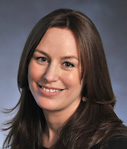
Zubrzyck
This project investigates various forms of Jewish-centered enterprises and practices, and analyzes the different meanings they hold for the Jewish and non-Jewish actors and institutions engaged in them. Based on extensive ethnographic fieldwork, archival research and interviews, she shows how the revival of Jewish culture in Poland is part of broader process of redefinition of national identity and the building of pluralism in that society.
Graduate Fellows
• Sheree Brown, history; A. Bartlett Giamatti Graduate Student Fellow
“‘That Peace Shall Always Dwell Among Them and True Love be Upheld’: Charity, Neighborliness, and Lay Fellowship in Late Medieval and Early Reformation England”
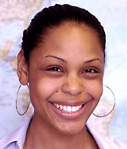
Brown
This project is a twofold examination of the gendering of the Christian virtue of charity as enacted through the seven works of mercy. First, Brown explores charity as a “religious ideology” as imagined by clerics, who sought to shape lay conduct through a catechetical program that advocated different methods of charitable living for men and women. Second, focusing on Lincolnshire, she investigates the different ways men and women responded to this educational initiative in their religious practices and in daily life. A gendered analysis of medieval charitable practices reveals the multifaceted and dynamic relationship between religious instruction and parishioner behavior.
• Basak Candar, comparative literature; Mary I. & David D. Hunting Graduate Student Fellow
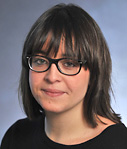
Candar
“Representing Censored Pasts: State Violence in Twentieth Century Turkish and Spanish Literature”
This dissertation examines the relationship between literature and political violence in 20th century Turkish and Spanish literature. It especially focuses on the second half of the 20th century, and discusses the ethical challenges of fictionally representing state-sanctioned violence.
• Alison DeSimone, music; James A. Winn Graduate Student Fellow
“The Myth of the Diva: Female Opera Singers and Collaborative Performance in Early Eighteenth-Century London”

DeSimone
This dissertation examines how female opera singers collaborated artistically and financially with other musicians in order to legitimize their new positions as professional performers, thereby transforming England’s musical culture at a time when anxieties over publicly visible women collided with the emergent reality of female celebrity. DeSimone challenges the dominant perspective of the female performer as “diva” by investigating how their musical contributions to pasticcio operas, English masques, and other theatrical events influenced the production and reception of English and Italian music in London between 1700 and 1720.
• Candice Hamelin, history of art; Sylvia “Duffy” Engle Graduate Student Fellow
“Behind Immaterial and Material Divides: East German Photography between 1949 and 1989”
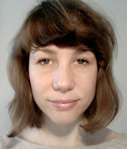
Hamelin
Through complementary case studies, this project investigates how the changing culturo-political environment of the German Democratic Republic influenced the artistic practices of leading East German photographers. Relying methodologically on primary sources, visual analysis, and interviews with artists, it speaks to photography’s commitment to promoting and/or circumventing socialist ideology, its concern with the private sphere, its place within and outside of art institutions, and its evolving role from document to metaphor. By examining the disposition and development of East German photography, this research provides insight into the complex relationship that existed between artists and the Socialist Unity Party, suggesting a multiplicity of strategies, policies and practices behind artistic endeavors and responses on the political level.
• Sara E. Jackson, comparative literature; Mary Fair Croushore Graduate Student Fellow
“Temptresses & Murderesses: Text, Body and Performance in Fin-de-Siècle Berlin”
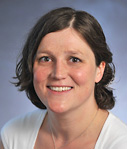
Jackson
This dissertation examines stage performances of deadly women in early-20th-century Germany, and interrogates the ways in which these productions contributed to a larger discourse complex surrounding the construction of normal and deviant femininity and female sexuality in the period. It contends that actresses were active participants in a matrix comprising artistic production, emerging scientific fields (criminology, sexology, psychology), and turn-of-the-century feminisms, which shared convergent and competing interests in the increasingly prominent cultural engagement with female subjectivity and social status.
• Pedro Monaville, history; Mary Fair Croushore Graduate Student Fellow
“Decolonizing the University”
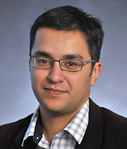
Monaville
On June 4, 1969, the police opened fire on a student demonstration in Kinshasa. Tens of young marchers died on the streets of Congo’s capital that morning. “Decolonizing the University” builds on extensive archival research and memory work to retrace the history of that demonstration and of the Congolese student movement around 1968. The dissertation provides a different approach to decolonization by focusing on the intersections between higher education and political activism in a newly independent African nation. The project seeks to contribute both to the understanding of state violence and social movements in the Congo and to the emerging field of historical research on global 1968.
• Rebecca Ariel Porte, English; Mary I. & David D. Hunting Graduate Student Fellow
“Forms of Logic: Beauty, Truth, & Reason in Twentieth Century Experimental Poetry”
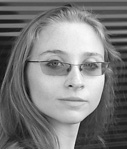
Porte
This project traces the ways in which the intellectual revolutions of the early 20th century — particularly the rise of analytic philosophy and attendant theories of mind — provoked poets to rewrite the rules for representing consciousness. Reading Gertrude Stein, William Carlos Williams, Wallace Stevens, Susan Howe and Anne Carson through (on one hand) the thinking of philosophers like C.S. Pearce, Bertrand Russell and Ludwig Wittgenstein and (on the other) the beauty-truth equivalence inherited from the Romantics, “Forms of Logic” explores the way theories of truth and beauty — categories supposedly exploded by the experiments of high modernism — participate in contemporaneous arguments about the nature and uses of logic, poetry, and the formalized pursuit of truth.
• Brendan Wright, political science; Marc & Constance Jacobson Graduate Student Fellow
“Divine Entanglements: Religious Claims-Making and American Democracy”
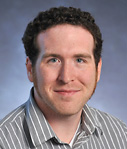
Wright
In much of the scholarly discussion about religion’s place in the public sphere, social scientists and political philosophers have conceptualized religion’s political relevance either as a discrete determinant of voting behavior or as a collection of knowledge claims about the world. By contrast, this dissertation advances an account of religion as supplying a rich body of aesthetic, rhetorical, and performative materials that can and have been used in democratic struggles throughout American history. Wright uses a combination of textual, conceptual, and historical analyses to argue that religious traditions not only form a constitutive component of American political culture but also supply crucial forms, figures, and argumentative resources for reimagining foundational commitments and challenging social and political relations.

